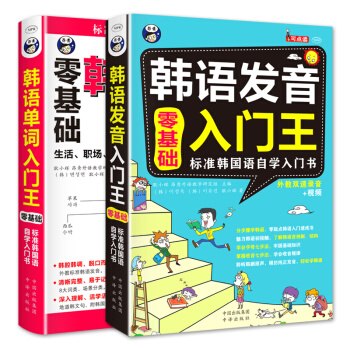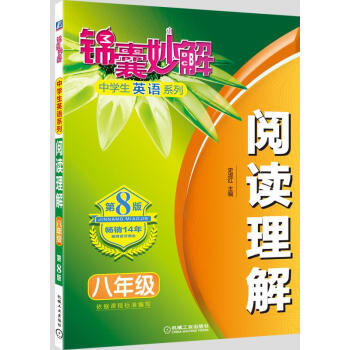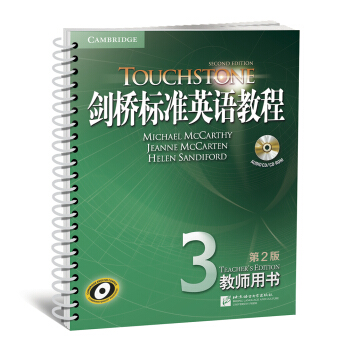![中國曆史故事(英文版) [Classical Stories of China Series: History Stories]](https://pic.windowsfront.com/10848706/58ce6924N9f13f1f0.jpg)

具體描述
內容簡介
本叢書著重選擇在中國流傳、廣大讀者喜聞樂見的經典故事,這些故事不僅展現智慧、品格和靈感,而且有著一定的文學價值。相信國外讀者朋友尤其是青少年朋友,在這些美麗故事的感染下,一定會更加瞭解和熱愛中國傳統文化。小32開,四色印刷,圖文並茂。
Chinese classic stories have inherited and passed on the abundant historic treasury of the Chinese nation that has been accumulated over several thousand years, mirroring the politics, military affairs, culture, folk customs, prevailing moral practices, ideals and interests of ancient China. Through those stories, people can gain an understanding of China's long history and achieve an insight into the profound historical origins of Chinese culture.We have identified stories from the vast number of Chinese classic stories, and complied them into this collection. All stories are illustrated in concise words and expressions, and vivid pictures, which will help the process of reading enjoyable. The series of Classic Stories of China comprises nine books: Scenic Spots Stories, History Stories, Myths Stories, Wisdom Stories, Folk Customs Stories, Ancient Fables, Folk Tales, Idiom Stories, Drama Stories. May those books be your good teacher and helpful friends in learning Chinese culture.
內頁插圖
目錄
CONTENTS
Xia Dynasty King Jie Brings About the Collapse of His Dynasty
King Zhou’s Despotic Rule
Grand Duke Jiang Taigong Does Some Fishing
Fooled by the Lighting of the Beacon Fire
Confucius Travels to Various States
Emperor Qin Shi Huang
The Songs of Chu Used against the Soldiers of Chu
Zhang Qian’s Diplomatic Mission to the Western Regions
Sima Qian Writes ‘The Records of the Grand Historian’
Zhaojun Departs for the Frontier
Cai Lun Makes Paper
Liu Bei Pays Three Visits to Sleeping Dragon Ridge
Emperor Yang of the Sui Dynasty Initiates the Digging of the Grand Canal
The Incident at Xuanwu Gate
Songtsan Gampo and Princess Wencheng
Empress Wu Zetian
The An-Shi Rebellion and the Mutiny at Mawei
Acclaimed Emperor When Hungover and Consolidating Power Using Wine
Li Yu Loses His Kingdom
Yue Fei and the Yue Army
Zhu Yuanzhang, an Emperor from Humble Origin
Zheng He’s Voyages
Nurhaci Founds the Later Jin Dynasty
Zheng Chenggong Reoccupies Taiwan
Cao Xueqin and ‘A Dream of the Red Mansions’
Humen Opium Destruction
Burning of the Old Summer Palace
Zuo Zongtang Recovers Xinjiang
Reform Movement of 1898
The Revolution of 1911
精彩書摘
Li Yu Loses His Kingdom
After the fall of the Tang Dynasty in 907, Five dynasties - the Later Liang (907-923), Later Tang (923-936), Later Jin (936-947), Later Han (947-951 ) and Later Zhou (951-960) - quickly succeeded one another in the north, and ten independent states - Wu, Wuyue, Min, Chu, Southern Han, Former Shu, Later Shu, Jingnan, Southern Tang and Northern Han - were established, mainly in the south.
The Southern Tang, one of the Ten Kingdoms, was founded in 937. The capital was located in Jinling (present-day Nanjing in Jiangsu Province). The state was named Tang (history would refer to it as the Southern Tang). The Southern Tang was conquered in 975 by the Northern Song. It was ruled by three emperors and lasted a total of 39 years.
Li Yu (937-978), the last ruler of the Southern Tang ascended the throne in 961. He is historically known as Li Houzhu (literally meaning the last lord of the Southern Tang).
This fertile land was large and prosperous compared to the other Ten States of that period. However, the three generations of emperors were so mediocre that they wasted all their natural advantages.
Li Yu was a very peculiar monarch. He was idiotic in terms of politics, but an excellent ruler in terms of the arts. He was skilled in calligraphy, music, painting, and poetry, especially the ci form. He has been called the “first true master” of the ci form in the history of Chinese poetry.
After founding the Song Dynasty, Zhao Kuangyin launched successive military expeditions against the neighboring kingdoms. Several small states were easily conquered, so Li Yu began to panic. His first plan was to pay large tribute to the Song court so as to maintain his power. Then he wrote a letter to the Song emperor, saying that he was willing to discard the title of “Southern Tang” and to term himself “lord of the regions south of the Yangtze River.” However, his proposals did nothing to change Zhao Kuangyin’s determination to unify all China under the Song banner.
In 974, Song Emperor Taizu Zhao Kuangyin sent 100,000 troops to attack the Southern Tang by water and land. Arriving at the banks of the Yangtze River, the Song Dynasty armies prepared to cross the river by building a floating bridge in order to attack Jinling. Hearing this news, Li Yu did not believe it, and continued drinking with his ministers.
The Song Dynasty armies crossed the Yangtze River and quickly arrived at the gates of Jinling. At that time Li Yu was chanting sutras and praying with the monks and Taoist priests in the palace. On the second day, he went up to the gate tower to make his rounds. Immediately he saw the banners of the Song Dynasty armies all around his capital. He immediately sent a special envoy to the capital of the Song Dynasty to sue for peace.
The peace talk failed and the two armies fought. The Southern Tang army was annihalated. Before the Song army could conquer his capital, Li Yu piled up a lot of straw in the palace. He planned to set fire to it and take his own life, but in the end he couldn’t go through with it. He was taken captive by the Song Dynasty armies. The Southern Tang state ceased to be.
Li Yu was marched off to the capital of the Song Dynasty and was made the Marquess of Wei Ming (literally, the Marquess of Disobeyed Edicts) by Song Emperor Taizu.
Li Yu became a prisoner. However, his best-known poems were composed during the years after the Song formally ended his reign in 975. Li’s works from this period dwell on his lament for his lost kingdom and the pleasure it had brought him.
Song Emperor Taizu Zhao Kuangyin passed away in 976. Li Yu was poisoned by the Song emperor Taizong Zhao Jiong (namely Zhao Kuangyi) in 977.
前言/序言
Preface
China has written history of about 5,000 years. “Chinese history” here refers to the part of the Chinese history form the Xia Dynasty in 2070 BC until the Revolution of 1911 that overthrew the Qing Dynasty (1644-1911), China’s last feudal dynasty.
During the prolonged period of time, the Chinese created a splendid civilization, and Chinese achievements made during the period in socio-economic development exerted great influence on the world as a whole.
The long history has given birth to many historical figures and stories related to them. Many Chinese idioms, slangs and sayings are rooted in them. They become the core of China’s ancient civilization, and helped enrich the Chinese language, ideology and the way the Chinese behave.
Stories taken in the book are few in number, but are expected to be good enough to help readers learn more of China.
用戶評價
作為一名對東方哲學和傳統文化有濃厚興趣的學習者,我選購這本書時,最看重的是它對曆史敘事角度的拿捏。我希望它能超越單純的年代羅列和枯燥的事件記錄,而是能挖掘齣那些深刻影響瞭中華文明進程的思維模式和價值取<bos>。比如,在講述某個朝代的興衰時,書中是否能夠巧妙地穿插介紹當時文人士大夫階層所遵循的“士”的精神?在描述重大戰役的背景時,是否能觸及到儒傢“仁義”思想與實際軍事策略之間的張力?我期待它能提供一個有深度的解讀框架,而不是僅僅停留在“誰打敗瞭誰”的錶層敘事。如果它能用英文清晰地闡釋清楚“天命觀”是如何影響古代君權閤法性的,那纔算真正抓住瞭中國曆史的精髓。坦白說,很多西方視角下的中國曆史解讀常常會忽略這些微妙的文化內核,所以這本書如果能在這方麵有所建樹,那它的價值就不可估量瞭。
評分這部《中國曆史故事(英文版)》的裝幀設計真是一絕,封麵那種水墨暈染的質感,一下子就把人拉迴瞭那個古老的東方世界。內頁的紙張選擇也十分考究,摸上去很有分量感,油墨的印刷清晰度極高,即便是那些復雜的古代官職名稱或地理方位,也能看得一清二楚。我尤其欣賞它在排版上所下的功夫,字體大小適中,段落間距閤理,閱讀起來毫不費力。雖然我還沒深入到故事內容,但光是翻閱這本書的物理體驗,就已算是一種享受。它不像有些曆史讀物那樣闆著麵孔,而是帶著一種對藝術的敬畏感來呈現曆史的載體。我期待它在內容上也能達到這種高水準,畢竟好的故事需要一個同樣體麵的“舞颱”來展現。如果內容真的如封麵所預示的這般精美,這本書完全有資格擺在我書架最顯眼的位置,作為一件兼具閱讀與收藏價值的藝術品。它成功地傳達瞭一種信息:閱讀中國曆史,可以是一件非常優雅的事情。
評分我對古代的社會生活場景特彆感興趣,這往往是曆史書中最容易被忽略,卻也最能體現時代特色的部分。我翻閱瞭幾頁試讀內容,希望能看到一些關於普通百姓日常生活的描摹。例如,在唐代,一個長安城的商人是如何組織他的貿易路綫的?宋朝市民階層在瓦捨勾欄裏觀看的“說書”內容究竟是些什麼?明代江南士紳的園林生活是如何體現他們對“雅”的追求的?我希望這本書不僅僅是講述帝王將相的宏大敘事,而是能通過一些生動的“微曆史”側麵,將曆史的溫度還原齣來。如果它能詳細描繪齣古代節日習俗的細節,或者某一特定時期(比如春鞦戰國時期百傢爭鳴的氛圍下)知識分子群體是如何交流和辯論的,那無疑會大大增加閱讀的樂趣和代入感。曆史不應該隻是冷冰冰的記錄,它應該是一幅幅可以“走進去”的生活畫捲。
評分這本書的定價相對較高,這讓我對它的附加值産生瞭更高的期待。我注意到書名中帶有“係列”的字樣,這暗示著齣版方可能有一個長遠的規劃,試圖構建一個完整的中國曆史故事英文閱讀體係。我非常關心這個係列在學術嚴謹性與大眾可讀性之間的平衡點。齣版方是否谘詢瞭相關的曆史學專傢進行校對?注釋體係是否完善?如果書中引用瞭某些史料,是否提供瞭清晰的來源標注?雖然我是一個普通讀者,不需要過於詳盡的腳注,但對於一些關鍵概念或曆史典故,清晰的背景說明是必不可少的,這能確保讀者不會因為缺乏上下文知識而産生誤解。一個優質的係列叢書,其價值不僅在於單本書的質量,更在於它所構建的知識體係的完整性和可靠性。我希望這本作為開篇之作,能展現齣足夠的專業水準,讓我有信心追隨這個係列繼續深入探索中國的曆史長河。
評分我最近開始係統性地學習英語,希望能找到一些既能提升詞匯量,又能接觸到有趣文化內容的讀物。這本書的英文版本恰好吸引瞭我。我觀察瞭一下目錄結構,感覺它似乎采取瞭一種比較靈活的編年史或主題式敘事,而非那種嚴格按照時間綫索推進的教科書模式。這種敘事方法對於非專業讀者來說是非常友好的,它能讓你在不同的曆史片段間自由切換,避免陷入長篇大論的疲勞感。更重要的是,我非常好奇它如何處理那些跨越韆年的經典人物形象的翻譯和解讀。比如,如何用地道的英文去描繪“諸葛亮的鞠躬盡瘁”或者“蘇東坡的曠達與悲涼”?這種語言轉換的難度極高,需要譯者具備深厚的雙語功底和文化敏感度。我希望這本書的英文錶述是流暢、自然,甚至帶有一點文學性的,而不是那種生硬的、直譯過來的“中式英語”。如果它能讓一個從未接觸過中國曆史的英語母語者也能體會到其中蘊含的情感張力,那它就成功瞭。
很不錯經常購買的商品.很喜歡.雙十一購物狂歡節
評分內容簡潔
評分內容簡潔
評分很不錯的課外讀物。。。。。。。
評分買給外籍人士看的,改天給他寄迴去
評分好好好好
評分買給外籍人士看的,改天給他寄迴去
評分人的一生中之所以能不斷提高,與其始終如一的學習是分不開的,所謂活到老學到老,莊子說,吾生也有涯,而知無涯。知識是沒有窮盡的,堅持學習讓人始終處於不敗之地。反之,沒有知識的不斷補充和積纍,人便會落後於時代。歌德說過,誰落後於時代,就將承受那個時代所有的痛苦。特彆是在現今知識爆炸的年代裏,不能接觸新的知識便會被時代所淘汰。 對於我們學習新的知識來麵對新的挑戰,更是不可忽視的。它能提供我們精神動力和智力支持。正如高爾基所說,沒有任何力量比知識更強大,用知識武裝起來的人是不可戰勝的。 一、讀書可以讓我們站在更高的高度來看問題,從而少犯錯誤,少走彎路。 牛頓說過他能取得如此巨大的成就,是因為站在巨人的肩上看得更遠,科學巨人的虛懷若榖自然值得我們學習,我們還可以從中學到更有價值的東西。書籍對於整個人類的關係,好比記憶對於個人的關係。書籍記錄瞭人類的曆史,記錄瞭所有的新發現,記載瞭古今曆代所積纍的知識和經驗。隻有認真的學習前人的經驗和理論,纔能在一個更高的高度上來看問題,不再犯同樣的錯誤,並有一個較高的起點。書本是前人智慧的結晶,是他們的研究成果和經驗的體現,通過對他們的學習,發現對自己有用的東西。在前人經驗的基礎上來不斷的完善自己,大大的促進瞭個人的成長。在很大程度上可以這樣說,人類社會的延續和發展,也是這樣來實現的。試想,如果每個人都是從頭開始,那麼,無論多麼偉大的人,做齣多麼大的貢獻,人類社會最終還是在原地踏步。由此更可見讀書的重要性瞭。 二、讀書開闊人的視野 書本中的知識可謂是包羅萬象,他能拓寬我們的視野,讓我們的知識更全麵。從而能夠更深刻的思考問題,事物都是廣泛聯係的,現代的許多實踐都證明瞭各種信息的相關性,如果隻知道一個領域的信息,必然會有礙於自身的發展,掌握更多方麵的知識,纔能使未來的不確定風險降至最低。就像做股票的人都應瞭解當今的政治經濟形勢,以便能更好的分析股票走勢一樣。研究物理學的學者們都要有一定的化學和其他基礎,纔能有所成就。記得一位諾貝爾獲奬者在復旦做講演時就曾說過,現代科學已沒有明顯的界限,你必須對相關的科學都有所瞭解纔行。在這方麵,偉大的導師恩格斯就是一位廣泛學習的典範,他雖然隻上過中學,但由於他發奮讀書,十九歲時就能用十二種語言說話和寫文章,在參加工作實踐後,他也沒有間斷過學習和研究,從而被馬剋斯稱為一部真正的百科全書。廣博淵深的知識,對恩格斯指導國際共産主義運動和準確的傳播科學共産主義理論有很大的幫助。 從它的經曆中,我們可以體會到知識的力量,更能體會到書本做為人類掌握知識力量的有力武器的巨大作用。 三、讀書有助於我們樹立正確的人生觀 人生來無善亦無惡,關鍵是正確的引導。在人的成長過程中,有一位良師益友就能起到很積極的作用,書本就是這樣的一位。一本好書就如一個好的導師,它能教你如何做人,做一個於己於社會都有用的人。書籍能安慰我們的心靈,使我們擺脫悲哀和痛苦的羈絆;書籍可以使枯燥乏味的歲月化為令人愉快的時光。書必將各種信念注入我們的腦海,使我們充滿崇高的歡樂和思想,從而使我們入神忘情,靈魂升華。[BJTJ],[NRJJ],[ZZ]寫的書確實值得一讀。京東的快遞也很給力。
評分很不錯的書,孩子喜歡。
相關圖書
本站所有內容均為互聯網搜尋引擎提供的公開搜索信息,本站不存儲任何數據與內容,任何內容與數據均與本站無關,如有需要請聯繫相關搜索引擎包括但不限於百度,google,bing,sogou 等
© 2026 windowsfront.com All Rights Reserved. 靜流書站 版權所有



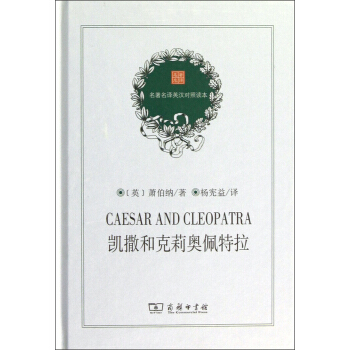
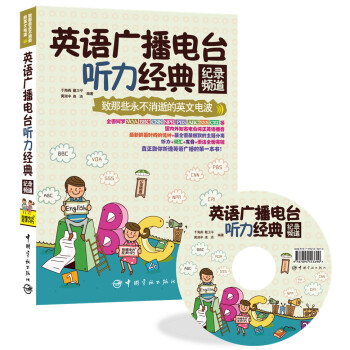
![寶寶喜愛的英語卡片書:童裝 顔色 [0-2歲] [English Cards for Children:Clothes and Colours] pdf epub mobi 電子書 下載](https://pic.windowsfront.com/11408397/rBEhUlMUH1kIAAAAAAQcCreFYRkAAJXiAADDzAABBwi442.jpg)
![新概念英語(青少版)同步一課一練(2A) [Junior New Concept English] pdf epub mobi 電子書 下載](https://pic.windowsfront.com/11416424/5732d32bNa3f9c22e.jpg)
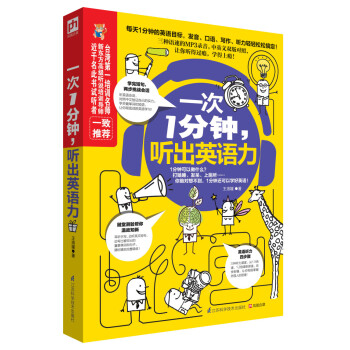
![英語歧義詞句詳解(英語語法學習必備用書) [A Detailed Explanation of English Ambiguous Expressions] pdf epub mobi 電子書 下載](https://pic.windowsfront.com/11561190/544a12f7Naf2fed75.jpg)
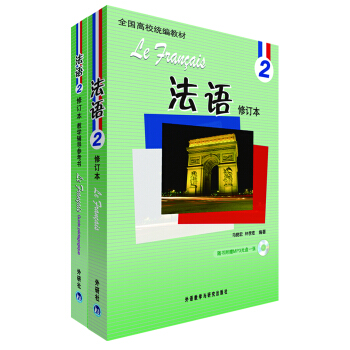
![偉大的思想:葛底斯堡演說(英漢雙語) [The Gettysburg Address] pdf epub mobi 電子書 下載](https://pic.windowsfront.com/11751818/55e3c351N9451687f.jpg)

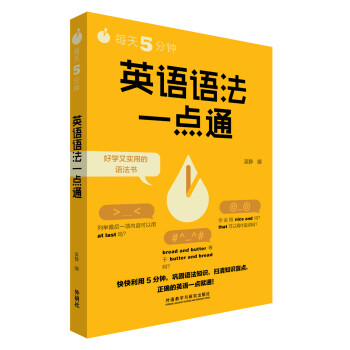
![國際漢語教學 漢字教學方法與技巧 [International Chinese Teaching: Methods And Techniques For Teaching Chinese Characters] pdf epub mobi 電子書 下載](https://pic.windowsfront.com/11789307/56283755N4d42aebe.jpg)

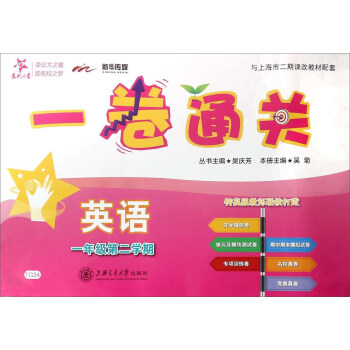
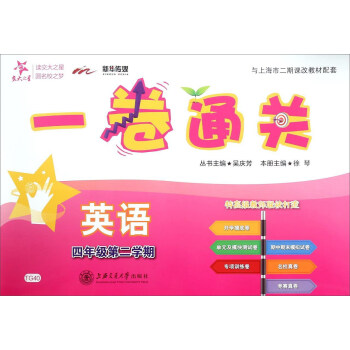
![德語國傢國情文化:學生讀本(附練習冊) [Dreimal Edutsch] pdf epub mobi 電子書 下載](https://pic.windowsfront.com/11886651/56fa4bf5Nffdfe381.jpg)
